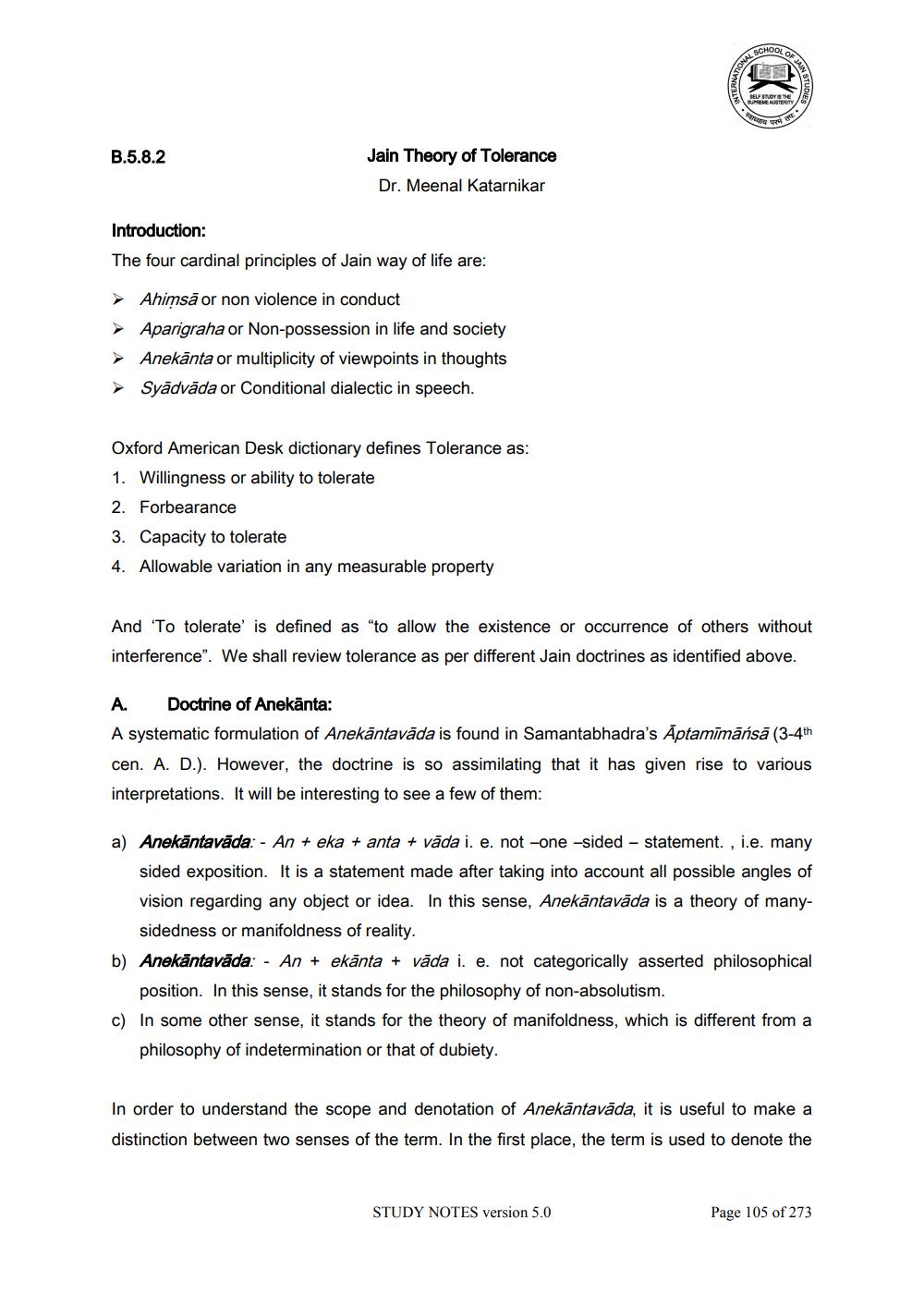________________
B.5.8.2
Jain Theory of Tolerance
Dr. Meenal Katarnikar
Introduction:
The four cardinal principles of Jain way of life are:
➤ Ahimsa or non violence in conduct
Aparigraha or Non-possession in life and society Anekanta or multiplicity of viewpoints in thoughts ➤ Syādvāda or Conditional dialectic in speech.
Oxford American Desk dictionary defines Tolerance as:
1. Willingness or ability to tolerate
2. Forbearance
3. Capacity to tolerate
4. Allowable variation in any measurable property
SCHOOL
OF
SELF STUDY IS THE
SUPREME AUSTERITY,
स्वाध्याय परमं तप
•
And 'To tolerate' is defined as "to allow the existence or occurrence of others without interference". We shall review tolerance as per different Jain doctrines as identified above.
STUDY NOTES version 5.0
A
Doctrine of Anekānta:
A systematic formulation of Anekantavāda is found in Samantabhadra's Āptamīmāńsā (3-4th cen. A. D.). However, the doctrine is so assimilating that it has given rise to various interpretations. It will be interesting to see a few of them:
a) Anekāntavāda: - An + eka + anta + vada i. e. not -one-sided - statement., i.e. many sided exposition. It is a statement made after taking into account all possible angles of vision regarding any object or idea. In this sense, Anekāntavāda is a theory of manysidedness or manifoldness of reality.
b) Anekantavāda: - An+ekanta
vada i. e. not categorically asserted philosophical position. In this sense, it stands for the philosophy of non-absolutism.
c) In some other sense, it stands for the theory of manifoldness, which is different from a philosophy of indetermination or that of dubiety.
In order to understand the scope and denotation of Anekāntavāda, it is useful to make a distinction between two senses of the term. In the first place, the term is used to denote the
Page 105 of 273




